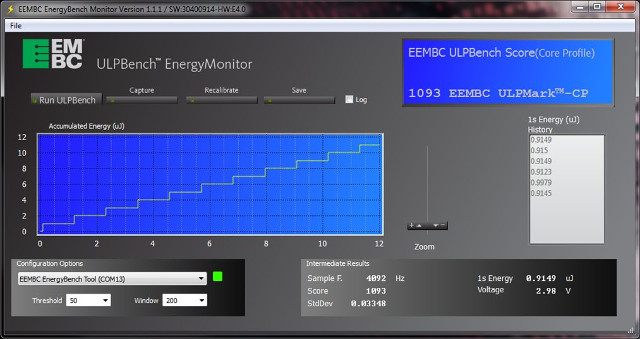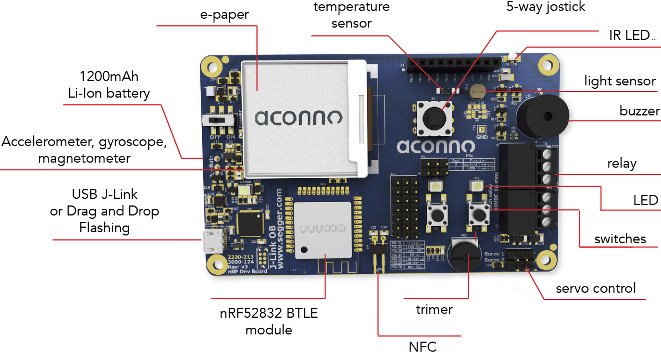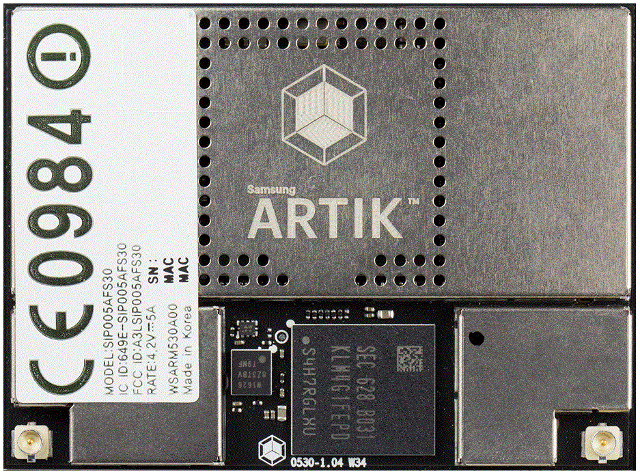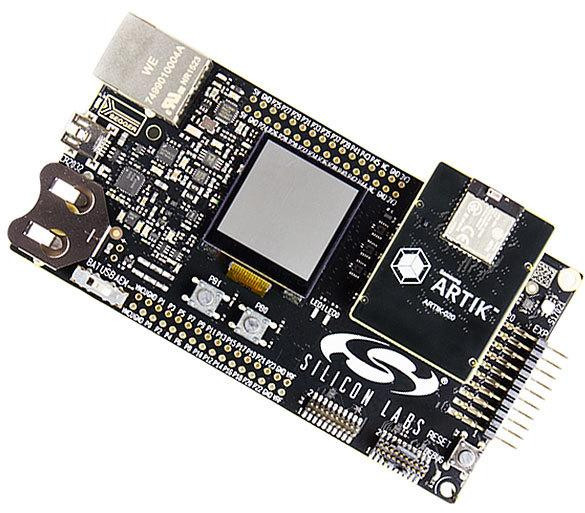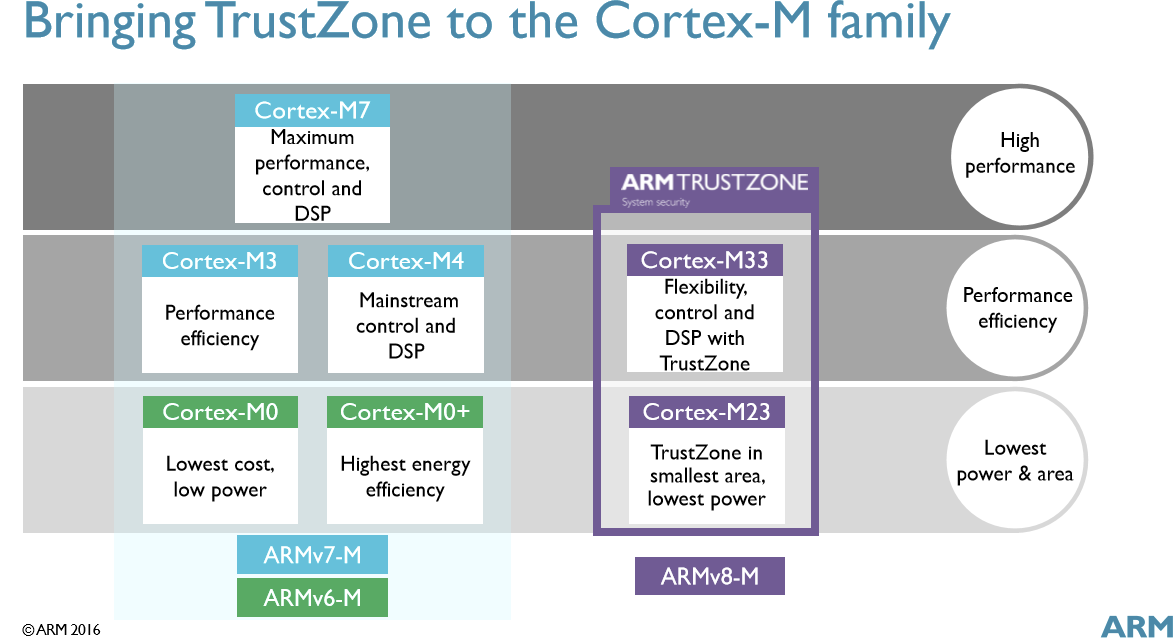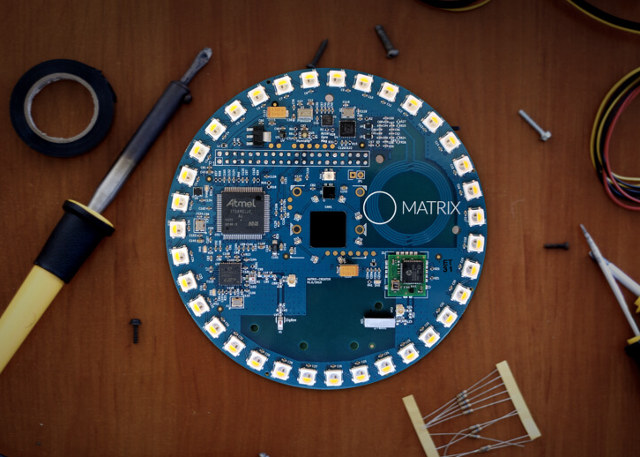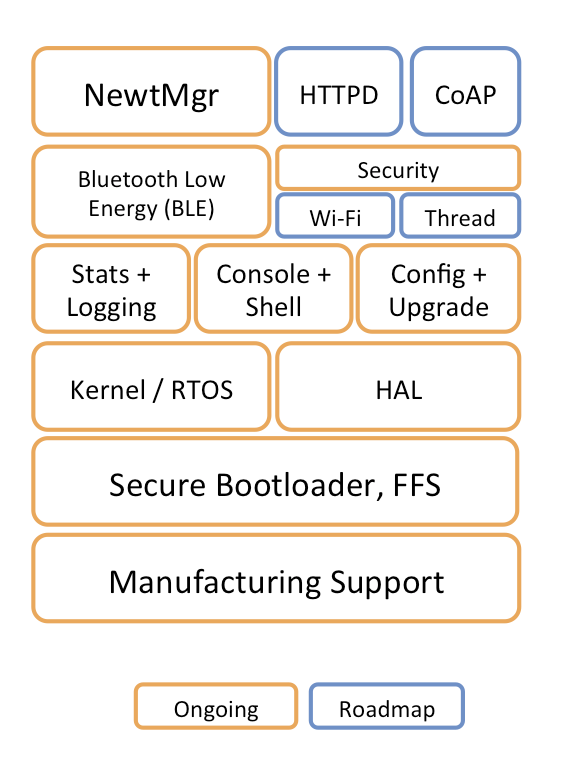EEMBC, the Embedded Microprocessor Benchmark Consortium, has been providing benchmarks for embedded systems since 1996, including ULPBench helping to rank micro-controllers by their power efficiency. But with the Internet of Things gaining traction, it’s important to test more than just the MCU core’s power efficiency, and having a benchmark taking sensors and connectivity into account would be useful. That’s exactly what EEMC IoT-Connect benchmark family aims for with the three main characteristics: Provides flexibility to accommodate various communication protocols (e.g. Bluetooth, Thread, LoRa, WiFi) Portable to work with any vendor’s microcontroller and radio-module products Compatible with EEMBC ULPBench and EEMBC IoT-Secure benchmarks The first benchmark of the family is IoTMark-BLE connectivity profile that supports Bluetooth (LE) MCUs. The benchmark requires fixed payload size, frequency of transmission, and transmit power, and performs a complete sequence of event ranging from sensor reading, to BLE notifications, and command write and CRC. The IoT-Connect […]
Aconno Bluetooth 4.0 & 5 IoT Development Board Features an nRF52832 or nRF52840 Module, an e-Paper Display, Sensors and More
Bluetooth 5 is the latest iteration of Bluetooth with up to four times the speed and twice the range of Bluetooth 4.0 LE, and so far apart from Puck.js and Nordic Semi nRF52840 devkit, I had not seen many Bluetooth 5 IoT modules or boards. Aconno, a German startup, has designed ACD-52832 Bluetooth 4.0 / Thread / ANT+ IoT development board based on their own nRF52832 module, and equipped with some goodies like a black & white e-Paper display, a joystick, sensors, I/Os, etc… They’ve also launched an updated module with Bluetooth 5 using nFR52840 SoC. I don’t have the full details about the new module, but the nRF52832 module and devkit is interesting to look at, especially features should be similar. Aconno ACD-52832 board specifications: Wireless Module – ACN52832 based on Nordic Semi nRF52832 ARM Cortex-M4 @ 64 MHz SoC with Bluetooth Smart, ANT+, Thread, NFC, and 2.4 GHz […]
Samsung Introduces Artik 530 IoT Module & Development Kit with WiFi, BLE, and Zigbee/Thread
Samsung unveiled Artik 1, Artik 5, and Artik 10 IoT modules & development board families in 2015, but since then they dropped the Artik 1 family, and instead launched Artik 0, Artik 5, and Artik 7 modules and boards late last year. More recently the company canceled the more powerful Artik 1020 development board, but the Artik project is still going on, as they’ve just added Artik 530 module & development kit to their Artik 5 family. Samsung ARTIK 530 module specifications: SoC – Unnamed Quad core ARM Cortex A9 processor @ 1.2 GHz with a 3D graphics accelerator System Memory – 512 MB DDR3 Storage – 4GB eMMC v4.5 flash Connectivity – Dual band SISO 802.11 a/b/g/n WiFi, Bluetooth 4.2 LE + Classic, 802.15.4/Zigbee/Thread, 10/100/1000M MAC (external PHY required) Other Interfaces and peripherals Camera – 4-lane MIPI CSI up to 5MP (1920×1080 @ 30fps) Display – 4-lane MIPI DSI […]
Qorvo GP695 “Smart Home” SoC Integrates 802.15.4, Zigbee 3.0, Thread, and Bluetooth LE
GreenPeak Technologies ultra-low power, short range RF communication technology company was acquired by Qorvo last year, and Qorvo has recently announced a GP695 system on chip (SoC) for smart home devices part of GreenPeak’s previous family of devices, and supporting multiple short range RF protocols. GP695 key features: MCU Core – ARM Cortex M4 Connectivity IEEE 802.15.4 ZigBee 3.0 Thread Bluetooth Low Energy (BLE) Qorvo Wi-Fi interference mitigation technology GP695 has been designed to be used in device such as a door locks, smart HVAC, smart security systems, connected video doorbells and intercoms, lightbulbs, smoke alarms, and leak detectors, and complements GP712 multi-protocol SoC designed for smart home gateways. Qorvo will feature live demonstrations of its smart home and IoT solutions at its booth during CES 2017, at Sands Expo, Halls A-D Booth #42114. There’s very limited public information, and no product page could be found in their website. Jean-Luc […]
Samsung Introduces $5 ARTIK 0 and $50 ARTIK 7 Smart IoT Module Families
Samsung unveiled ARTIK 1, 3 and 5 boards for the Internet of Things in 2015, and started to sell them, together with development with WiFi, BLE and Zigbee connectivity earlier this year. The Korean company has now announced two new family with ARTIK 0 modules powered by an ARM Cortex-M MCU and destined to be used in HVAC, lighting, industrial sensors, personal health monitoring and more, as well as ARTIK 7 family powered by an Octa-core Cortex A53 processor, and targeting IoT gateways. ARTIK 0 Family ARTIK 0 family is now comprised for ARTIK 020 with Bluetooth, and ARTIK 030 for applications requiring Thread and/or Zigbee. Beside the different radios, both modules share the same key features: MCU – ARM Cortex-M4 up to 40 MHz with Floating Point Unit, 256KB flash, 32 KB SRAM, advanced hardware cryptographic engine with support for AES-128/-256, ECC, SHA-1, SHA-256, and a Random Number Generator […]
ARM Introduces Secure Cortex-M23 and Cortex-M33 ARMv8-M MCU Cores, and Bluetooth 5 Cordio Radio IP for IoT Applications
ARM TechCon 2016 is now taking place in Santa Clara, California, USA, as ARM has made three announcements for the Internet of Things, the focus of SoftBank going forward, with two ARM Cortex-M ARMv8-M cores integrating ARM TrustZone technology, namely Cortex-M23 low power small footprint core, and Cortex-M33 core with processing power similar to Cortex-M3/M4 cores, as well as Cordio Radio IP for Bluetooth 5 and 802.15.4 connectivity. ARM Cortex-M23 ARM Cortex-M23, based on the ARMv8-M baseline architecture, is the smallest and most energy efficient ARM processor with TrustZone security technology,and targets embedded applications requiring both a small footprint, low power, and security. Its power consumption is low enough to be used in batteryless, energy harvesting IoT nodes, and is roughly a third of Cortex-M33 processor size, and offers more than twice its energy efficiency. Cortex-M23 is a two-stage pipelined processor, software compatible with other processors in the Cortex-M family. […]
$99 MATRIX Creator Raspberry Pi Add-on Board Features Plenty of Sensors, a 2.4 GHz Radio, and More
MATRIX Creator is a round-shaped add-on board for Raspberry Pi boards with various sensors, a microphone array, an LED array, a Xilinx FPGA, an Atmel Cortex-M3 MCU, wireless connectivity via Z-Wave, ZigBee, Thread, and NFC, as well as various I/Os…. MATRIX Creator specifications: FPGA – Xilinx Spartan 6 FPGA MCU – Atmel ATSAM3S2C Cortex-M3 MCU Connectivity – ZigBee, Thread, Z-Wave and NFC Sensors – Ultraviolet, pressure, humidity, temperature, 3D accelerometer, 3D gyroscope, 3D magnetometer Audio – 8x MEMs microphone array with Alexa support Expansion – 2x ADC, 17x digital GPIOs, SPI, I2C, UART; 40-pin connector for Raspberry Pi 2/3 Misc – 35x RGBW LEDs array, IR Rx/Tx, infrared ring for the Raspberry Pi NoIR camera I can’t think of the single application that would make use of all features of this board, but the least we can say is that it’s extremely versatile. The developers are providing MATRIX OS based […]
Apache Mynewt RTOS for IoT Includes an Open Source Bluetooth 4.2 LE Stack for MCUs
The Apache Software Foundation has recently released version 0.9 Apache Mynewt open source real-time operating systems for micro-controllers under… an Apache 2.0 license. The RTOS works on STMicro STM32 Cortex-M4, and Arduino Zero / M0 Cortex-M0 boards, but they’ve also implemented the first open source Bluetooth Low Energy stack for MCUs, starting with support for Nordic Semi nRF52 Cortex-M4 and nRF51 Cortex-M1 evaluation boards, and acting as a replacement for Nordic SoftDevice Bluetooth Smart / LE solution. The operating system competes with ARM mbed, the Zephyr Project, and RIoT, but the foundation claims it is the only one that’s both community driven and permissively licensed (Apache 2.0) project in the embedded space. The OS is modular and can be configured with a Go-like build and package management tool with components such as secure boot loader, flash file system and TLV storage mechanism, rich logging infrastructure, circular buffering schemes, and Bluetooth […]


